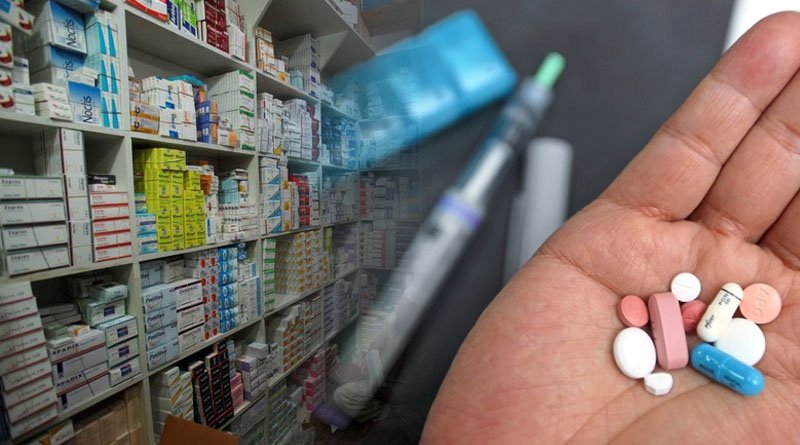The official said that if any medication was not produced in the nation, hospitals, pharmacies, and regular people could import it after receiving an NOC from the DRAP.

The Drug Regulatory Authority of Pakistan (DRAP) has been urged to ensure the availability of 131 medicines, including some that are essential and life-saving, that have been identified by the Islamabad health department’s drug control section and are currently unavailable at pharmacies in the capital.
A letter from the Secretary of the Quality Control Board, Islamabad, Sardar Shabbir Ahmed, states, “During a recent market survey conducted by the drug inspectors of Islamabad, there is a shortage of drugs mentioned in the list enclosed (131), thereby creating inconvenience for the patients.
The letter, which is addressed to Ayub Naveed, the DRAP‘s point person on drug availability, also states that the DRAP must take the necessary steps to guarantee a steady supply of medicines on the market in order to protect patients’ lives and aid in patient treatment.
An official of the National Health Services, Regulations, and Coordination (NHS,R&C), speaking about the medication shortage, told media that a list of 131 medicines that are currently unavailable at pharmacies in Islamabad and other cities of Islamabad includes some “life-saving” and “essential” medications, as well as skin ointments, multivitamins, and other therapeutic products.
“Actually, drug inspectors are in charge of examining the accessibility of the medications at pharmacies and medical supply stores. When they observe a significant medication shortage on the market, they alert their managers and the department, who then notify DRAP,” the representative explained.
A comprehensive list of medications, including those referred to as “life-saving and essential drugs,” was compiled and sent to the DRAP’s focal person for action, according to the NHS official, based on the input of Islamabad’s drug inspectors’ week-long survey on the availability of drugs.
A thorough analysis of the list sent to the DRAP reveals that the majority of the drugs that aren’t available are made by international corporations, while some are also produced locally by pharmaceutical firms. Some products from these firms are also unavailable on the market.
Despite recommendations from the DRAP and Minister of National Health Services, Regulations, and Coordination (NHS,R&C), the government was not willing to increase the price of 119 drugs, forcing the manufacturers to stop producing them, according to a representative of a major multinational pharmaceutical company who spoke on condition of anonymity out of concern for retaliation from the authorities.
“Due to the cost of production exceeding the maximum retail price set by the DRAP, our company no longer produces 30 to 40 medications. Although we requested a price increase, the government has refused to heed the DRAP’s and the federal health ministry’s recommendations “The official continued.
Pakistan Pharmaceutical Manufacturers Association (PPMA) has requested a meeting with federal health minister and finance minister to discuss their struggles. However, neither official has yet agreed to the meeting because they anticipate that the PPMA will once again demand an “across the board” increase in the cost of medications.
An official of the DRAP ruled out the possibility of any uniform increase in drug prices, saying that pharmaceutical companies have made billions in Pakistan and that it is now time for them to sacrifice their profits because consumers could not afford any additional increases in drug costs.
“We have sent the federal government a list of 119 medications whose production costs are higher than their retail prices. The federal government must now decide whether to raise the prices or not,” the representative said.
In response to a question about the unavailability of 131 medications, a DRAP official said that most of the medications on the list were brands for which there were substitutes. The official also said that if any medication was not produced in the nation, hospitals, pharmacies, and regular people could import it after receiving an NOC from the DRAP.